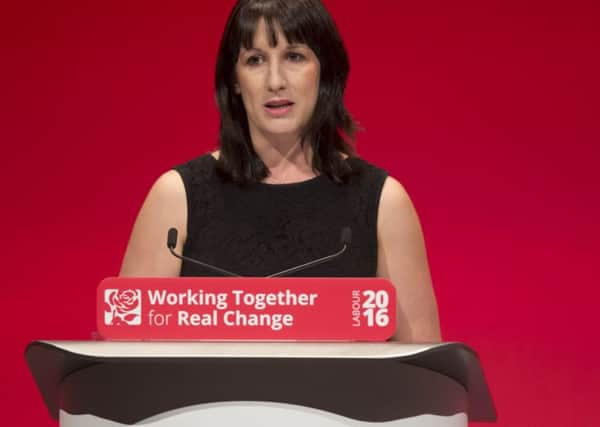Rachel Reeves: The day I realised we had already lost EU referendum


The business employs about 800 people, up from 750 in 2007 and 500 during the last recession. The business helps major retailers import clothing and get their goods to shops across the country. The chief executive works with a community centre to recruit young people, although – like many employers – they also hire many Eastern European workers, particularly Poles.
Despite the support for Labour, I knew it was going to be a tough audience. Many workers blamed Europe for the fact their wages had barely kept pace with the rising cost of living. Most felt immigration was too high and out of control. Few thought the Government was on their side. They listened politely while I talked about the risks of voting leave, but the raw anger came out in the question session afterwards.
Advertisement
Hide AdAdvertisement
Hide AdThe arguments included “who cares if leaving Europe meant fewer jobs? The jobs all go to foreigners anyway”; and “there was a massive recession when we were in the EU, so you can’t say leaving will cause a recession”.
I knew in my heart that day that we’d lost the referendum. My head had told me – the economist – that we would win because the consequences of leaving were a risk voters wouldn’t take, 100 days ago. But, by Friday morning, we knew the leave campaign’s emotional message was stronger.
Looking back, I think politicians’ failure to acknowledge voters’ legitimate concerns meant we didn’t earn the right to be heard on other issues – like the rights at work that are now at serious risk outside of the EU under a Conservative government.
We didn’t convince those who were uncertain or who didn’t vote at all. But we asked the question and so we must respect the answer.
Advertisement
Hide AdAdvertisement
Hide AdSo, how do we interpret the vote and what should we on the progressive left be demanding from the renegotiation?
Immigration controls and ending free movement has to be a red line post-Brexit – otherwise we will be holding the voters in contempt. Subject to that, we need the greatest possible access that we can get to the single market without free movement.
Of course, British firms exporting goods and European importers to Britain have shared interests. Neither side will want to pay higher tariffs, but this will involve difficult negotiations because the EU will not be able to offer better terms to countries outside the EU club.
The challenge for Labour now is how we get the best deal for working-class voters – many of whom have drifted to other parties including Ukip – and ensure the best economic settlement in terms of trade, immigration, growth and good jobs.
Advertisement
Hide AdAdvertisement
Hide AdWe have to focus on our key priorities. We need tough negotiations to keep exports and imports tariff-free in the interests of British – and European – exporters as well as consumers. We must also ensure the fullest possible access to the single market for the UK service sector. If that means signing up to rules on regulation or data protection, for example, that would be a price worth paying to protect jobs and investment.
We also need to be clear about what the Chancellor must do to steer the UK through these turbulent times.
This means urgent action to rebalance the economy away from London and the South East to ensure good quality and well-paid jobs in all areas of the country. The Government must back investment in infrastructure across the country – not just schemes like Crossrail in London.
Everything that has happened since the British people voted to leave the EU shows that we need to take these actions urgently. Just a few months on, we are seeing the impact with firms cancelling or delaying investment, and jobs at risk.
Advertisement
Hide AdAdvertisement
Hide AdAfter the vote, Ford has warned Brexit could mean job cuts and rising car prices. Nissan has suggested future investment decisions about its plant in Sunderland will depend on the Brexit negotiations.
The Bank of England has cut the base rate to a new low, and the Chancellor has been forced to promise to replace EU funding for scientists and farmers and retaining many other EU schemes after our exit – at an estimated cost of £4.5bn a year. He has also said the Treasury will guarantee EU projects signed off before the Autumn Statement.
But with the economic data deteriorating, more must be done. The Government needs a strong and sensible industrial strategy to rebalance the economy and protect jobs and growth.
All this must happen while we still take heed of the referendum result and negotiate our exit from the EU. If we fail to do that, people will despair because it will confirm their fears that no one is listening.
Advertisement
Hide AdAdvertisement
Hide AdBrexit must be a wake-up call for anyone who wants government by the people, for the people, of the people. And we on the progressive left must use this to help build a fairer and more inclusive model of economic growth.
Rachel Reeves is the Leeds West MP. This is the edited version of an article first written for the Fabian Society.